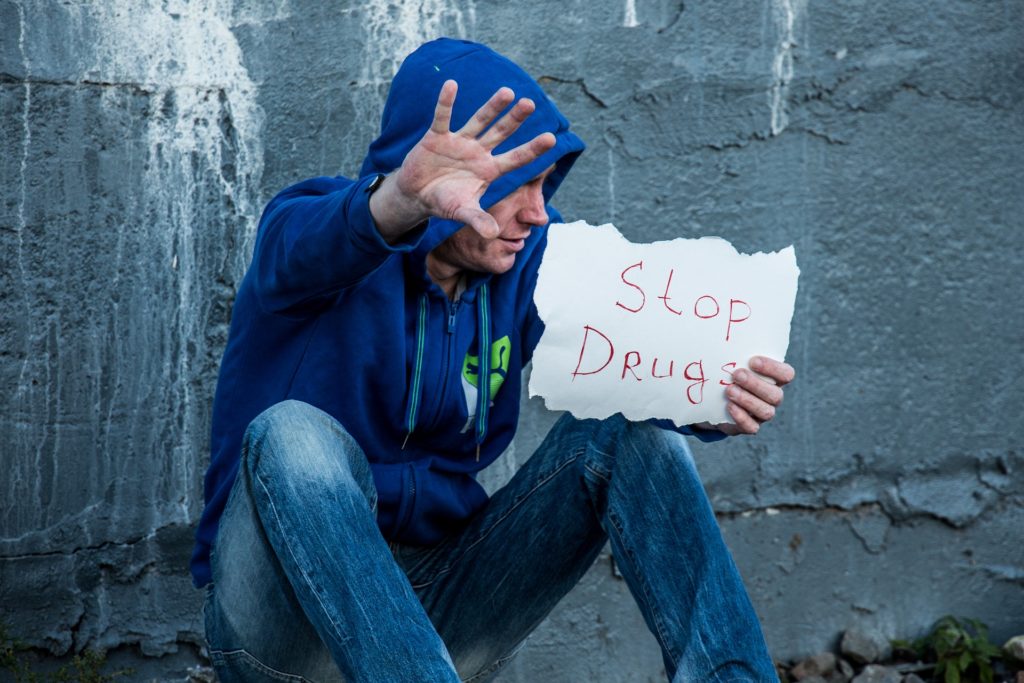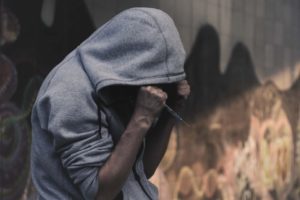
“The best way to prevent drug addiction and overdose is to prevent people from abusing drugs in the first place. If they don’t start, they won't have a problem.” – President Donald J. Trump.
In 2016, more than two million American citizens had an addiction to prescription or illegal opioids and according to the Center for Disease Control and Prevention’s the national average of opioid deaths in 2015 was 10.4 per 100,000 [1].
A Public Health Emergency
The opioid crisis is undoubtedly a public health emergency. On October 27th President Donald Trump engaged his Administration to attach the drug addiction and opioid crisis by declaring it a public health emergency.
By sanctioning this status, it allows for expanded access to Americans through telemedicine services, and remote prescribing of medicine which is typically reserved for substance abuse or mental health treatment.
Through this action, it allows for the Department of Health and Human Services to be able to hire employees more quickly or make temporary appointments of specialists within addiction to be able to respond to this crisis effectively.
Through President Trump’s activation of resources, it also allows the Department of Labor to increase grants to workers who have been displaced due to the opioid crisis and to shift resources to the HIV/AIDS programs to assist individuals who receive substance abuse treatment within the population.
This decree comes following the established President's Commission on Combating Drug Addiction and the Opioid Crisis in March of this year whose mission is to “study the scope and effectiveness of the Federal response to drug addiction and the opioid crisis and to make recommendations to the President for improving that response” [1].
Battling the Opioid Crisis
Over $1 billion in funding has been allocated and spent to address the drug and opioid crisis since Trump took office.
President Trump gave an address Thursday, October 26, 2017, on the crisis of drug abuse, addiction, and drug overdose deaths.
He stated that the “epidemic is a national health emergency, unlike many of us we’ve seen and what we’ve seen in our lifetimes….As Americans, we cannot allow this to continue” [2].
 President Trump directed all executive agencies to use ‘every appropriate emergency authority’ to fight the opioid crisis.
President Trump directed all executive agencies to use ‘every appropriate emergency authority’ to fight the opioid crisis.
He announced a new policy that prevents States from providing care at specific treatment facilities that treat drug addiction.
He also went on to say that he is waiting for results from his Presidential Commission on this crisis to give relevant information to develop next steps to attack the addiction crisis.
He gave credit in his speech to the Center for Disease Control and Prevention for its new prescription awareness campaign to address dangers of opioid abuse.
He went on to acknowledge CVS Caremark for limiting first-time opioid prescriptions to 7-day supplies, and the FDA’s requirement of drug companies that manufacture prescription opioids to provide more training to prescribers to help prevent drug abuse [2].
President Trump also announced that there are further monitoring and inspection of packages entering the United States by the U.S. Postal Service and Department of Homeland Security to try to stop the shipment of fentanyl, which is a synthetic opioid and is 50 times more potent than heroin [2].
The president also hinted at the support of non-addictive painkillers but did not expand on his thoughts regarding this. He also reported that his Administration would be spending ‘lots of money’ on the solution to the opioid crisis.
He seemed to connect during his speech to the importance of education and prevention for the youth, hoping to stop the start of drug use and experimentation.
In his address, President Trump briefly talked about the U.S.-South American wall that he reports will stop a majority of drugs entering in our country. He reiterated that the White House Administration is dedicated to enforcing immigration laws, defending maritime security, and border patrols.
Drug overdose deaths, in general, are on the rise due to opioid-involved deaths within the U.S. Approximately 6 out of 10 deaths involve an opioid [3].
The number of prescription opioids that are sold to medical facilities has quadrupled within the past 30 years. This is a national crisis that affects all of our communities.
Through President Trump’s decree of a Public Health Crisis, the crisis was declared under the Public Health Services Act [4].
 This act known as the Stafford Act directs federal agencies to provide an increase in grant funding to combat the opioid crisis, rather than coming from FEMA funding, which is typically reserved for natural disasters and has been severely drained due to the recent hurricanes and flooding in the southern States.
This act known as the Stafford Act directs federal agencies to provide an increase in grant funding to combat the opioid crisis, rather than coming from FEMA funding, which is typically reserved for natural disasters and has been severely drained due to the recent hurricanes and flooding in the southern States.
Funding to attack the crisis will come from already existing grants, versus more money being put into the existing resources as directed in the Public Health Services Act [4].
Trump addressed this concern with working with Congress to increase the money given to current funding at the end-of-year budget plan.
There is some apprehension from Congress on the sincerity of President Trump’s true alarm for the opioid and drug abuse crisis.
The passing of more money to be able to better fund community, State, and Federal resources with the ability to address and prevent prescription drug abuse could help in the president’s support among Congress and White House Administration members.
There are multiple pros and cons to this issue. More funding can mean better and quicker access for opiate abusers to get treatment for their addictions, but it is likely a short-term answer via the federal government.

According to NPR White House correspondent Tamara Keith, Dr. Betha Madres, a member of the President's opioid commission, stated in an interview with NPR that typically FEMA declares natural disasters and these disasters are more of a specific location or point in time.
A Public Health Emergency, however, will allow the government to address this emergency on a nationwide basis permitting standard access to telemedicine.
This ability to use telemedicine will be key in rural communities such as Appalachia, or the Rust Belt where their access to medical care is limited.
These regions have a doctor shortage, and thus, inadequate access to medical-assisted treatment which is needed on a nationwide level [5].
With a public health emergency there is a fund but currently, it is empty, and Congress has not appointed money to the fund. To put new funding into existing ones within the community to address the crisis, Congress will need to earmark money for the account.
The White House did report that they are working with Congress on the end-of-year budget to allocate money for this account.
 About the Author: Libby Lyons is a Licensed Clinical Social Worker and Certified Eating Disorder Specialist (CEDS). Libby has been practicing in the field of eating disorders, addictions, depression, anxiety and other comorbid issues in various agencies. Libby has previously worked as a contractor for the United States Air Force Domestic Violence Program, Saint Louis University Student Health and Counseling, Saint Louis Behavioral Medicine Institute Eating Disorders Program, and has been in Private Practice.
About the Author: Libby Lyons is a Licensed Clinical Social Worker and Certified Eating Disorder Specialist (CEDS). Libby has been practicing in the field of eating disorders, addictions, depression, anxiety and other comorbid issues in various agencies. Libby has previously worked as a contractor for the United States Air Force Domestic Violence Program, Saint Louis University Student Health and Counseling, Saint Louis Behavioral Medicine Institute Eating Disorders Program, and has been in Private Practice.
Libby currently works as a counselor at Fontbonne University and is a Adjunct Professor at Saint Louis University, and is a contributing author for Addiction Hope and Eating Disorder Hope. Libby lives in the St. Louis area with her husband and two daughters. She enjoys spending time with her family, running, and watching movies.
References:
[1] President Donald J. Trump is Taking Action on Drug Addiction and the Opioid Crisis. (2017, October 26). Retrieved October 30, 2017, from https://www.whitehouse.gov/the-press-office/2017/10/26/president-donald-j-trump-taking-action-drug-addiction-and-opioid-crisis
[2] Remarks by President Trump on Combatting Drug Demand and the Opioid Crisis. (2017, October 26). Retrieved October 30, 2017, from https://www.whitehouse.gov/the-press-office/2017/10/26/remarks-president-trump-combatting-drug-demand-and-opioid-crisis
[3] Secretary, H. O., & Assistant Secretary for Public Affairs (ASPA). (2017, June 15). About the Epidemic. Retrieved October 30, 2017, from https://www.hhs.gov/opioids/about-the-epidemic/index.html
[4] Merica, D. (2017, October 26). Trump declares opioid epidemic a public health emergency. Retrieved October 30, 2017, from http://www.cnn.com/2017/10/26/politics/donald-trump-opioid-epidemic/index.html
[5] Keith, T. (2017, October 26). In Opioid Crisis, Public Health Emergency Vs. National Emergency. Retrieved October 30, 2017, from http://www.npr.org/2017/10/26/560229103/in-opioid-crisis-public-health-emergency-vs-national-emergency
The opinions and views of our guest contributors are shared to provide a broad perspective of addictions. These are not necessarily the views of Addiction Hope, but an effort to offer discussion of various issues by different concerned individuals.
We at Addiction Hope understand that addictions result from a combination of environmental and genetic factors. If you or a loved one are suffering from an addiction, please know that there is hope for you, and seek immediate professional help.
Published on November 1, 2017
Reviewed By: Jacquelyn Ekern, MS, LPC on November 1, 2017.
Published on AddictionHope.com
